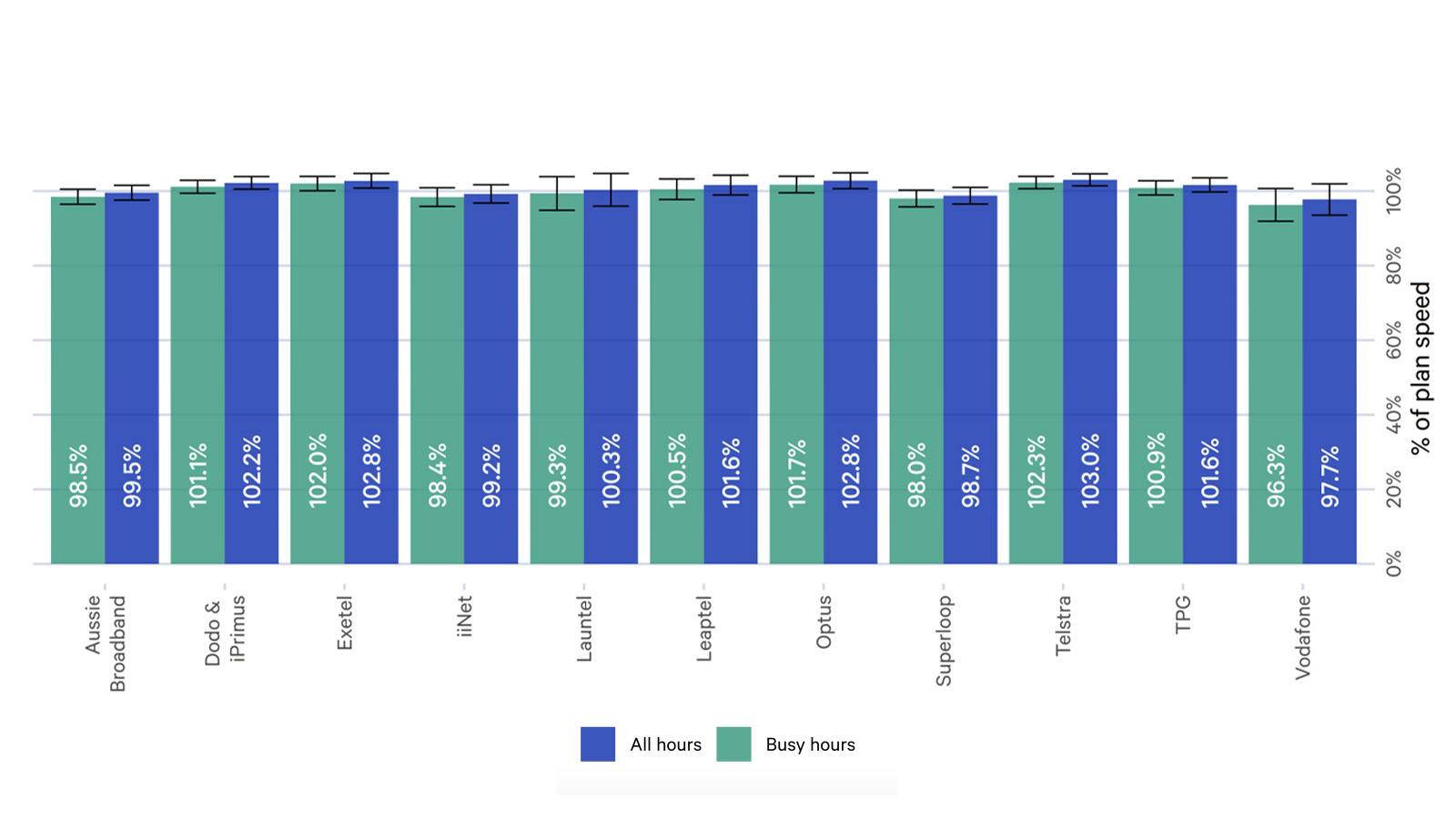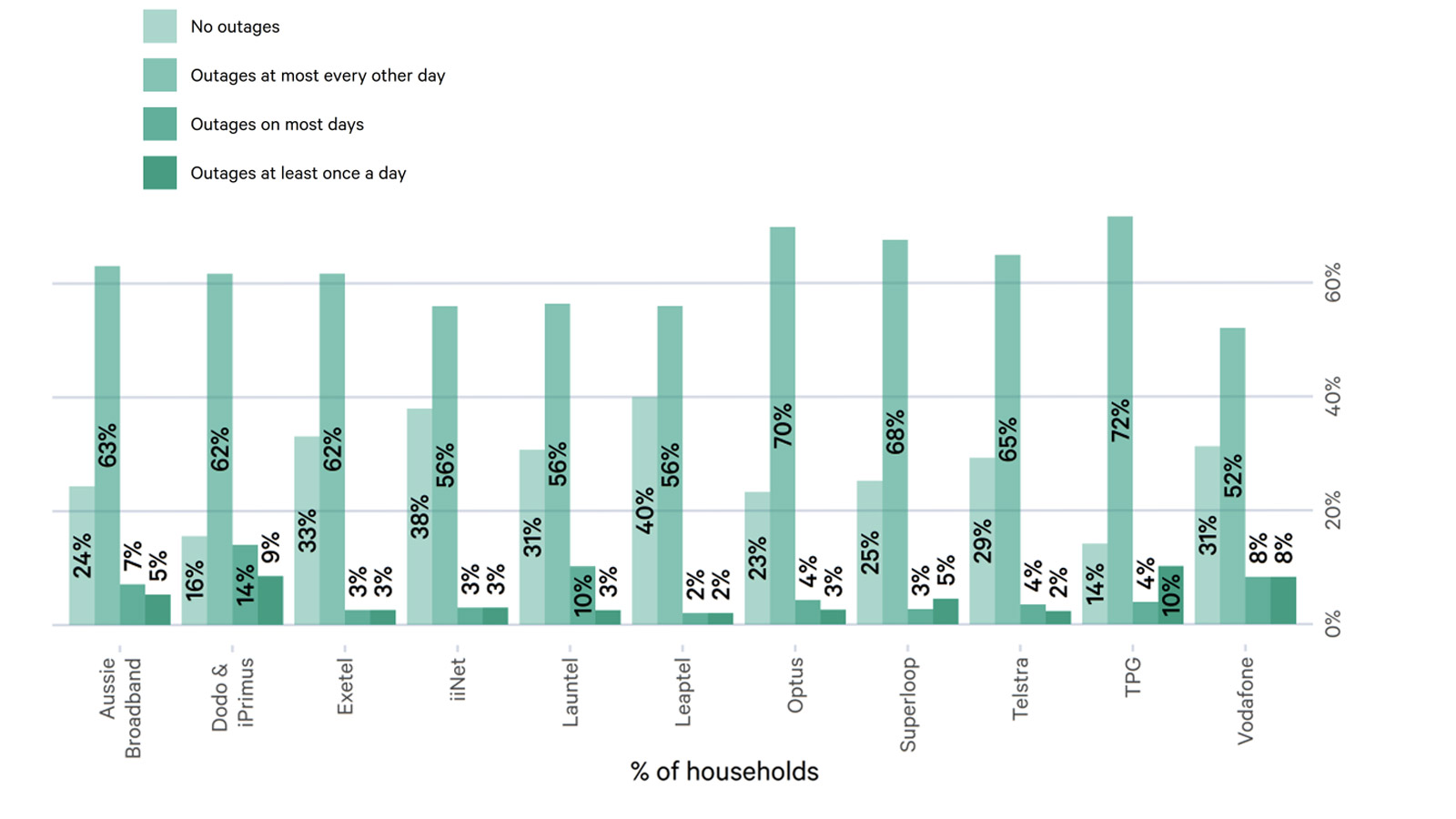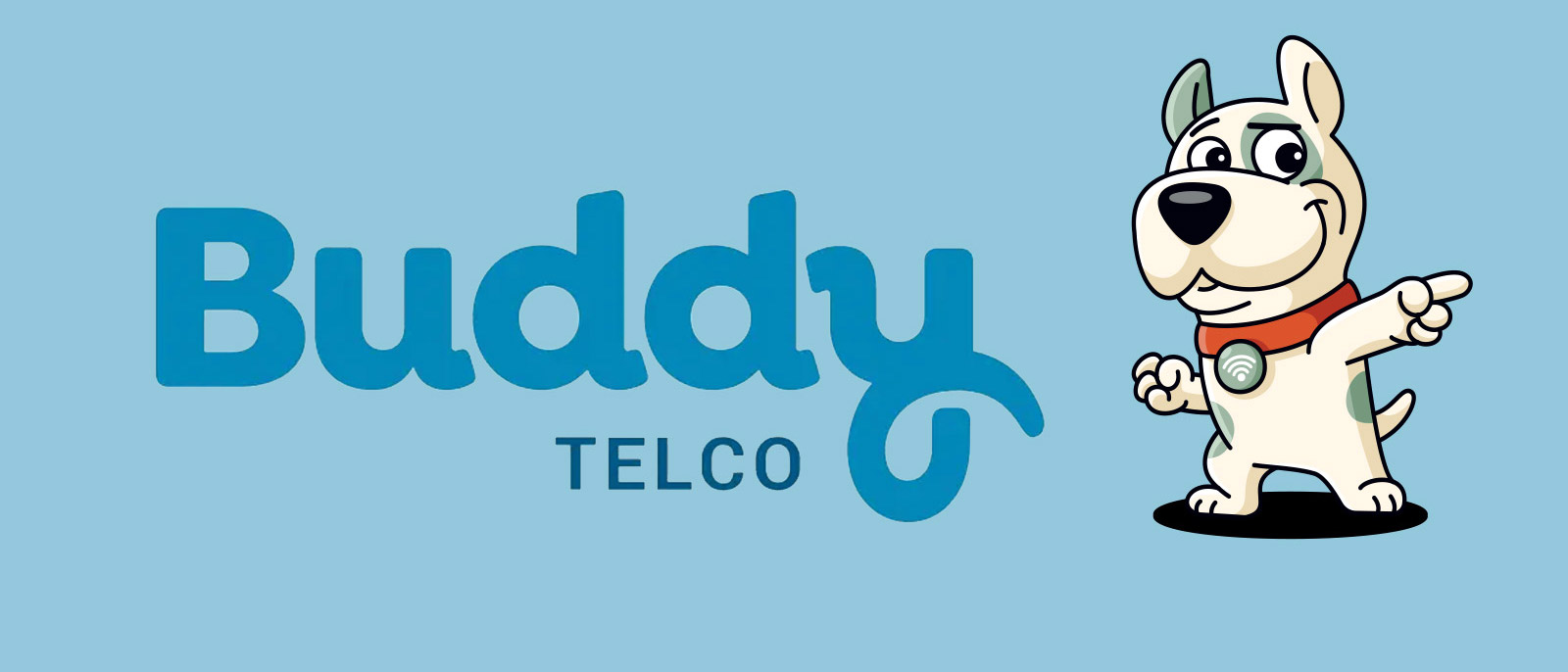TechRadar Verdict
Australian-owned internet service provider Buddy Telco only entered the market in July 2024, but it already appears to be shaking things up harder than a freshly washed dog. It's owned by Aussie Broadband, widely regarded as being one of the best providers in the country and it uses the very same network, meaning customers can expect an almost identical service. While Buddy's plans are cheaper than its Aussie Broadband parent, they aren't the absolute cheapest available – expect for its NBN 1000 plan, which is the cheapest and which presents itself as being an incredibly affordable route to near-gigabit speeds.
Pros
- +
Cheapest NBN 1000 plan
- +
Well-renowned, reliable network
Cons
- -
No telephone support
- -
No hardware
Why you can trust TechRadar
Buddy Telco is relatively new to the NBN scene in Australia, having only launched in July 2024, but it's already making quite the stir, offering a range of plans at competitive prices.
Because it is so new, there’s a bit less data to go on when putting together a Buddy Telco review, but there are a few ways we can make logical assumptions as to how it performs as an internet service provider (ISP). The main way we can gauge how Buddy Telco will perform – and therefore, help you decide if it’s the right choice for your household needs – is that it’s an offshoot of Aussie Broadband.
If you’re unfamiliar with Aussie Broadband, it’s a renowned telco with local customer support staff manning the phones. While Aussie isn’t the cheapest NBN provider, you only need to take a quick look at online reviews of Aussie Broadband to understand just how well-regarded it is in comparison to some other providers, with a solid 4.5 out of 5-star rating on Product Review, based on over 8,500 reviews.
Buddy Telco uses the very same network infrastructure as Aussie Broadband, so it’s fair to assume its service will perform in much the same way. This is sort of where the similarities between Buddy Telco and Aussie Broadband end.
One of the main differences between the two providers is that Buddy relies almost solely on AI for its customer support and it's entirely app-based. This means any troubleshooting help you need is answered by an AI chatbot, with only the most complex of cases being moved further up the chain to a human expert.
We’ll cover all the facets of Buddy Telco that make it not only a different proposition to its parent company, but most other NBN providers too. Before we do, you can view the full selection of Buddy Telco plans below.
Buddy Telco review: Plans
- Four plans to choose from
- No NBN 250 plan
- Typical evening speeds below maximums
Buddy Telco has a fair selection of NBN plans, although it doesn’t cater to every single speed tier, in that there is no ‘Superfast’ NBN 250 tier. There’s no obvious indication as to why this is, nor is there any indication that an NBN 250 plan will be added in the future. That means that customers with a fibre to the premises (FTTP) or hybrid fibre coaxial (HFC) connection type who want to take advantage of the faster speeds available to them only have one choice: Buddy’s NBN 1000 plan.
It’s also worth noting that Buddy Telco currently only services fixed-line NBN customers. This means if you connect via NBN fixed-wireless, satellite, or another private provider such as Opticomm, then you won’t be able to sign up with Buddy. The company does say these connection methods aren’t supported “yet” on its website, but we don’t expect support for them to arrive anytime soon.
With regards to fixed-line NBN connections though, it’s also worth pointing out that Buddy Telco doesn’t claim to reach the maximum possible download speeds on any of the speed tiers it offers. The figures quoted (and those quoted by every other NBN provider) is known as ‘typical evening speed’ and it’s indicative of the download speed you can realistically expect to achieve during the identified busy evening hours of 7pm to 11pm. If figures aren’t the theoretical maximum capable at a certain speed tier, it doesn’t necessarily mean you won’t achieve them, nor does it technically mean you can expect to achieve the maximum during off-peak hours.
In the case of Buddy Telco, it says its typical evening speed figures have been calculated based on the most recent Monitoring Broadband report data published by the Australian Competition & Consumer Commission (ACCC) in June 2024. However, since Buddy Telco didn’t arrive until July 2024, we can safely assume this data is based on the Aussie Broadband network, which Buddy is a subsidiary of.
Here at TechRadar, we ultimately tend to recommend NBN providers who do advertise maximum plan speeds first, and those who don’t (even if they come agonisingly close) only if there’s a compelling secondary reason. In this regard, Buddy Telco generally wouldn’t get our outright recommendation, because several other providers do quote maximum speeds. There are other factors to consider though, which we’ll cover throughout this Buddy Telco review.
Buddy Telco review: Speeds
- Reported data based on Aussie Broadband network and customers
- Generally positive initial reviews from early adopters
As mentioned, Buddy Telco doesn’t advertise maximum typical evening speeds across any of the NBN tiers it offers. However, on its NBN 25, 50 and 100 plans, it generally only falls short by up to 2Mbps. In reality, this is highly unlikely to make any noticeable difference compared to a plan that does quote maximum speeds. But if you want the absolute fastest speeds at all hours of the day, then Buddy Telco is potentially not the provider for you.
While internet service providers are required to advertise a typical evening speed figure, it doesn’t always tell the full story. We can turn to official data published by the ACCC to gain a greater insight into how a telco may perform in the real world, and in the case of Buddy Telco, that means looking at data recorded against Aussie Broadband.
The latest report published in June 2024 revealed ABB delivered 99.5% of advertised plan speeds during all hours of the day and 98.5% of advertised plan speeds during the busier evening hours. As a side note, Aussie Broadband advertises the same typical evening speeds as Buddy Telco.

These figures do include underperforming services, which the ACCC defines as “services that reach above 75% if plan speed in no more than 5% of download tests".
Using this data, and taking Buddy Telco’s NBN 100 plan as an example, it would theoretically mean Buddy Telco customers can expect to achieve 96.5Mbps download speeds during the busy evening hours (98.5% of 98Mbps).
However, removing underperforming services, these percentages improve significantly, with Aussie Broadband customers achieving 102% of advertised plan speeds during all hours of the day. The ACCC further adds that the majority of underperforming services are those connected via fibre to the node (FTTN), potentially implying that if you use another connection type, you too could theoretically achieve 102% of advertised plan speeds with Buddy Telco.
We’ve also checked online forums to see if anyone has already signed up to a Buddy Telco NBN plan, and if so, what speeds they’ve been achieving. It’s potentially very good news indeed. Whirlpool is often a great forum to find out the real world capabilities of an ISP and there are already a number of people who have migrated to Buddy Telco. Many are quoting incredibly fast speeds on the network – around 930Mbps on NBN 1000 in some cases. Customer accounts like this are generally from users who were previously connected via Aussie Broadband and who expected (quite fairly) to receive an identical service, since it’s the same network.
Buddy Telco review: Cost
- Cheapest NBN 1000 plan
- Mid-tier pricing for other tiers
- No hardware availability
Besides speed, the other main factor we consider when recommending the best NBN plans is the cost and this is where things get really interesting for Buddy Telco. It’s no secret that Buddy isn’t the cheapest provider on the NBN 25, NBN 50 or NBN 100 speed tiers. In fact, it sits at around the midpoint of the 20-something providers we monitor. But to give Buddy Telco some credit, its pricing on these speed tiers is below the current national average by up to AU$7p/m.
Moreover, when you compare Buddy Telco’s prices with those of Aussie Broadband, the difference increases and it’s these figures that present Buddy Telco as a better value option, since you’re essentially getting the Aussie Broadband network for less than Aussie Broadband prices.
Since we first published this review, Buddy has adjusted its pricing structure. It previously only offered an introductory discount on its NBN 100 plan and a three-month intro discount on its NBN 1000 plan. That's now changed, with just the NBN 50 plan now receiving a six-month introductory discount.
Fortunately for Buddy, despite it now charging a flat-rate of AU$99p/m for an NBN 1000 plan, it still makes it the cheapest in the country (just not by quite as large a margin anymore).
Average monthly costs correct at time of publishing.
• NBN 25: Average monthly cost – AU$70.15p/m. Buddy Telco cost – AU$65p/m
• NBN 50: Average monthly cost – AU$83.77p/m. Buddy Telco cost – AU$75p/m
• NBN 100: Average monthly cost – AU$91.68p/m. Buddy Telco cost – AU$85p/m
• NBN 1000: Average monthly cost – AU$119.93p/m. Buddy Telco cost – AU$99p/m.
While it’s fair (and factual) to say Buddy Telco is a better-value option compared to Aussie Broadband, we have to compare it against the full selection of NBN providers in Australia. The fact that Buddy Telco’s monthly costs are lower than the national average is a great start, but there are some providers, such as Flip and Spintel, that are cheaper still and quote the maximum possible typical evening speeds on NBN 25 to NBN 100 plans.
Overall, however, we think Buddy Telco is a good value proposition, taking into account monthly cost and the fact that you’re getting access to the Aussie Broadband network.
When you sign up for a new NBN plan, you’re normally asked if you want to add on a modem (usually for a fee, or at the very least a postage fee) or if you want to use your own. In the case of Buddy, that choice is taken away, with your only option being to supply your own. Buddy Telco’s choice to not offer hardware is just one of the ways it can save on operational costs, which are passed onto customers in the form of lower-cost plans.
If you decide to switch to Buddy Telco from another ISP, then the modem you were using will likely work. You may need to change some configuration settings, but Buddy’s technical support should be able to help out if you get stuck.
Buddy Telco review: Reliability
- Infrequent outages
- Outages suffered can last longer
It’s not always easy referring to the reliability of any particular telco, since multiple factors can affect the internet service you experience at home. It’s for this reason we can only turn to official ACCC data to provide a general overview.
Once again, because Buddy Telco is so new to the market, there isn’t any official data for it. But since it uses the Aussie Broadband network, we can use data gathered for its parent company as a rough guide.

According to the latest report (page 21), which monitored outages across 169 homes connected to Aussie Broadband, 63% of households suffered an outage at most every other day; 5% suffered an outage at least once a day; 7% on most days and 24% of households experienced no outages.
While these figures don’t necessarily paint ABB – and therefore Buddy Telco – in the best light, online reviews of the network are generally much more positive.
Buddy Telco review: Gaming
- Uses the optimised Aussie Broadband network
- Direct links to international servers
Buddy doesn’t make any specific bold claims about its gaming credentials, but since it uses the Aussie Broadband network, there’s a very high chance it will perform admirably. ABB makes strong claims about its network and the fact it is well-optimised for gaming, with “international transit links” to select regions including the USA and Southeast Asia. Essentially, this means when you’re connecting to a popular gaming server, even if it is overseas, Aussie Broadband’s network should find the most direct route, resulting in quicker ping times.
While we can’t categorically say you will definitely get the same experience with Buddy Telco, we would be surprised if you didn’t. And if it does, it would make Buddy a potentially fantastic, affordable internet provider for hardcore gamers.
Buddy Telco review: Cancellation & hidden costs
- No exit fee
- Cancellation all handled within the app
If at any point you decide you want to cancel your service with Buddy Telco, you can do so quickly and easily via the app or website. All troubleshooting and messaging is done via the app or website, with an AI chatbot taking care of the majority of requests. When you’re in the app or on the site, all you need to do is select the service you want to close and Buddy will take care of the rest.
Buddy doesn’t state how quickly your service will be deactivated, but on the face of things, it would be logical to assume it will be deactivated almost instantly. Buddy doesn’t mention any 30-day notice periods or anything of that ilk, unlike some other NBN providers.
Also, it’s worth mentioning that Buddy Telco currently doesn’t offer the ability to opt out of CGNAT, nor does it offer static IP addresses. This is unlikely to affect the majority of users, but if you are someone who wants or needs to opt out, then you will need to look for another provider. Aussie Broadband works in a similar way, although does at least give the option of providing a valid reason to opt out.
Buddy Telco review: Reputation
- Early positive reviews
- Aussie Broadband parent company is held in high regard
Buddy Telco has only been in the market for a short time at the time of publication, so it’s not yet possible to gain a particularly deep insight into how well it does actually perform as an internet service provider. There are just seven reviews on ProductReview at the time of writing, six of which are positive five-star reviews and one negative, resulting in a 4.4-star rating.
Online forum Whirlpool has a thread dedicated to Buddy Telco, and the general consensus is a positive one. In particular, customers don’t seem to be phased by the lack of telephone customer support, and are happy to perform any troubleshooting via the app. They say they’ve never really had to call customer support when connected to Aussie Broadband, and since Buddy Telco should provide a very similar service, everything should work as it’s meant to.
Buddy Telco review: Verdict
Based on our research into Buddy Telco and using Aussie Broadband as a benchmark, we feel we can recommend Buddy Telco as an NBN provider if you’re looking to make the switch. The network is reliable and is likely to deliver faster download speeds than the figures it advertises.
Its NBN 1000 plan is incredibly well priced (especially if it does deliver close to gigabit speeds as some customers have already experienced), coming in much cheaper than any other provider. The lack of human customer support may be a bother to some, but for the most part, any and all questions can be answered by the in-app AI chatbot. If needed, you can still speak to a human at Buddy if your query is particularly complex.
As with most other ISPs, Buddy Telco works on a no-contract basis and cancelling appears to be a simple process if you decide you want to switch providers. But we reckon it won’t ever come to that – in Buddy Telco, you could have a friend for life.

Max is a senior staff writer for TechRadar who covers home entertainment and audio first, NBN second and virtually anything else that falls under the consumer electronics umbrella third. He's also a bit of an ecommerce fiend, particularly when it comes to finding the latest coupon codes for a variety of publication. He has written for TechRadar's sister publication What Hi-Fi? as well as Pocket-lint, and he's also a regular contributor to Australian Hi-Fi and Audio Esoterica. Max also dabbled in the men's lifestyle publication space, but is now firmly rooted in his first passion of technology.
